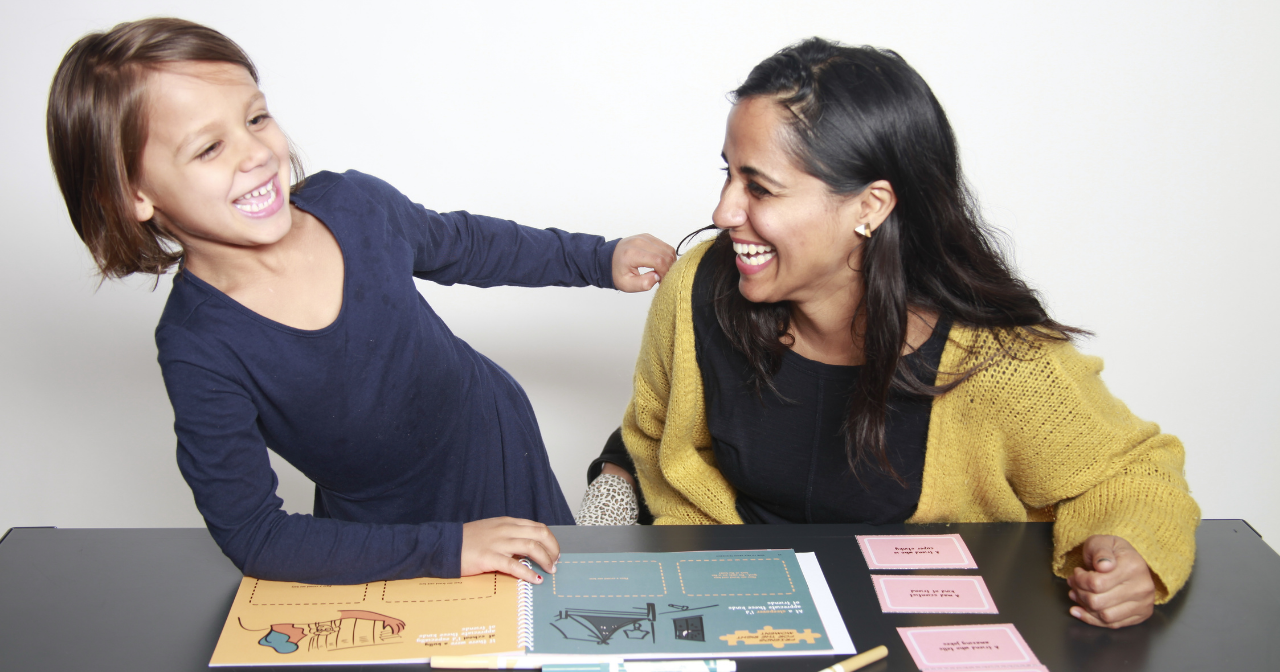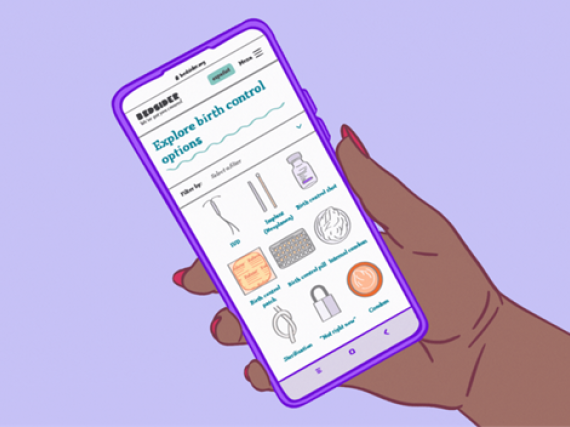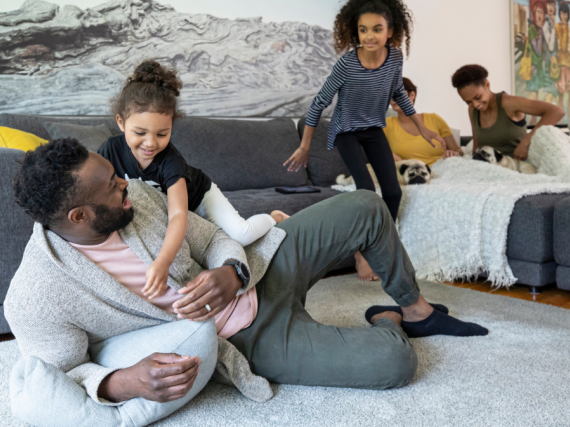4 Parents on Why They Want to Talk
Parents and champions are the primary resource young people look to for information on sex, love, and relationships. You are in a unique position to talk to your children about issues that can have significant life consequences. But sometimes, knowing how to navigate these conversations can feel awkward, which is why organizations like Bloom Science and Power to Decide offer helpful conversation prompts, educational information, advice, and guidance on how to start the conversation—and keep it going.
“I grew up with absolutely zero discussion around sexuality, emotions, etc.… It created so much uncertainty as a child and even into my adult years on how to handle those situations. I have a 4-year-old now and I’d like her to grow up knowing how to handle these topics and having an open dialogue with us so she feels she can go to us with no fear or embarrassment,” said Bea, the mom of a daughter age 4.
Bloom Science began in 2018 when a group of parents decided they wanted their children to have a better sex ed experience than they’d had growing up—and a better experience than their children’s school was providing. After extensive research, Bloom created a series of sexuality education learning resources that are holistic, smart, playful, and inclusive. Divided into three sets of three playbooks based on age, Bloom’s materials cover topics from bodies, babies, and boundaries to secrets and safety online. Their products are currently being used by parents across the country.
“Even though I wish it wasn't, talking to my kids about sex, bodies, boundaries, relationships, and everything that goes along with that can feel hard and scary. I loved how Bloom makes talking about this stuff feel fun and easy. It's such a change from how I engaged (or avoided) these conversations with my parents when I was a kid. I was surprised to see how my son really engaged in the conversation with me. Sometimes we forget, but kids are so curious about this stuff—as they should be! —and Bloom makes it safe for them to share that curiosity,” Mark, the father of two boys, age 7 and 3, said.
Karly, mom of 2 daughters, age 9 and 7, agreed, “My 9-year-old has loved these playbooks. She was resistant to starting, but I showed her all three and asked her if there was one that she was up for trying. Being able to choose between the three books gave her a sense of ownership. We started with Crushes. There’s a part where you talk about your first crushes as a kid. I feel like hearing about my experiences with puberty and crushes helped her to feel comfortable sharing with me and asking me questions. I had to open up first. And it felt good. Then she was eager to keep going! When we finished, she wanted to go through her younger sister's playbooks as well. So, we might need to order some new ones for her little sister!”
“My daughter is so private about these things. I’ve tried to talk to her about puberty, what’s going on with her body and she just refuses to talk. And I know things started to change, with her body, a year ago or so. The other day, she was watching a show that was probably a little too mature for her age on Netflix and she asked me, ‘What’s an orgasm?’ I was like, ok, this is my chance. I got the Bloom books out and I said, ‘Well, these books talk about it, you want to take a look together?’ I couldn’t believe it, but for the first time, she actually said she was interested. We went through the pages about sex and why people have it. I thought it was important to say that it’s not usually about having babies. We looked at the parts of the vagina and I explained what a clitoris was. I was like: yes, I am totally prepared for this moment! And the book didn’t tell you what to say, it just gives you a way to start the conversation while not awkwardly staring at each other. We could look at the book. And it really normalized all of this, which is so important for her because she’s really preoccupied with things being ‘weird,’ Carla, the mother of daughter age 11 and son age 7, shared.
Sex education can take a variety of forms and can come from a variety of sources. And with a little preparation it doesn’t have to be awkward. Celebrate the special relationship between you and your young people throughout Let’s Talk Month. Have a powerful conversation today.
Note: Names of parents have been changed to protect privacy. Bloom is offering pay-what-you-can pricing to help families afford Bloom Homeschooling Playbooks. To save $10, use promocode EQUITY10. To save $20, use promocode EQUITY20. To save $30, use promocode EQUITY30.
Dr. Caricia Catalani, Design Director at IDEO, is a public health researcher, designer, and mother of two girls. She leads Bloom Science alongside Anthony Veneziale and a team of dedicated designers and creative contributors. To learn more about Bloom Playbooks, go to www.BloomScience.org.



